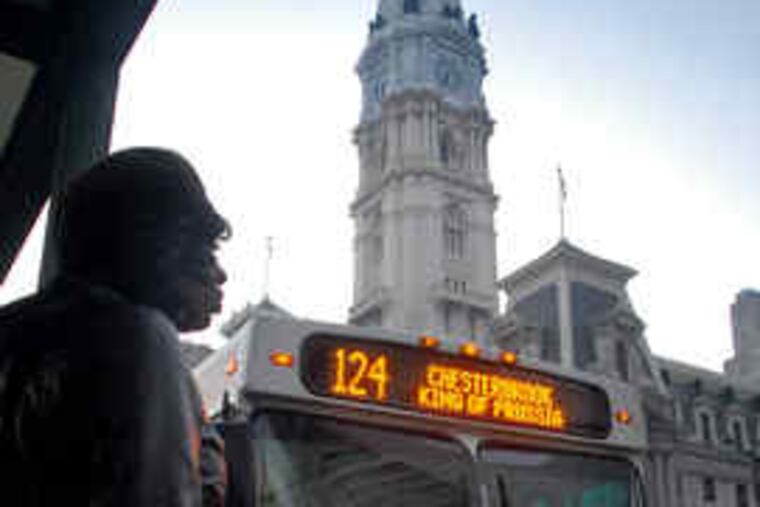SEPTA commuters "thrilled" strike is over
Evening commuters at Suburban Station were no longer plagued by the snaking queues of riders who had been forced during the six-day SEPTA strike to switch from idled buses, trolleys, and subways to Regional Rail lines.

Evening commuters at Suburban Station were no longer plagued by the snaking queues of riders who had been forced during the six-day SEPTA strike to switch from idled buses, trolleys, and subways to Regional Rail lines.
"You can tell, by looking around, it's business as usual," said Bill West, 54, of Landenberg, Chester County, who sat relaxed on a bench waiting for his regular 5:09 train.
SEPTA passengers yesterday spoke of being "thrilled," "happy" and "relieved" that the walkout was over.
"You can breathe a little bit," said Carlo Gidaro, 31, of Northeast Philadelphia, another bench-sitter at Suburban Station, who was reading a newspaper instead of waiting in line for the R8 to Fox Chase.
The much-appreciated return to normalcy was tempered by lingering anger, mainly directed at Transport Workers Union Local 234.
"I recognize you have to have some bargaining strength, but you can't hold a city hostage," said West, who believes binding arbitration should be mandated for transit workers just as it is for police and firefighters.
"When [unions] get a certain level of power, they become the bullies they were created to battle against," West said.
Similar sentiments were common.
"They should have never gone out to begin with," said Ed Costello, 45, a teacher from Glenolden, coming off the Broad Street Line in Center City.
"If they're going to continue to do this, then the days of unions are going to be over," said Courtney Brown, 48, another Broad Street commuter.
The first day back from the strike was not without glitches, some infuriating.
At the SEPTA Shop near the Market-Frankford Line's City Hall concourse, tempers flared when some TransPass owners were told they would get only a partial refund and would have to go to SEPTA headquarters at 12th and Market Streets to get it.
"That's not fair," Frank Malaszecki, 49, barked at a customer service representative who sat behind a plexiglass window.
Malaszecki, of Northeast Philadelphia, walked away from the window exasperated. He said he had bought a weekly Zone 3 pass before the strike so his wife could commute to a new job in Willow Grove. She never made it, he said.
"All I wanted was an exchange," Malaszecki fumed. "They just brushed me off and gave me a runaround."
SEPTA spokeswoman Jerri Williams acknowledged that there may have been some initial confusion about TransPass exchanges.
"Many of the cashiers had been out during work stoppage and might not have the full information about the credit and exchange policy," Williams said. "We're working to rectify that."
Williams said that several sales locations ran out of TransPasses, so customers were steered to SEPTA headquarters to make their exchanges.
"We had to make a run to replenish inventory at several Center City sales locations," she said.
Doreen Thompson, 57, was also told to exchange her Zone 1 pass at SEPTA's main office.
"They said they wouldn't take it back," said Thompson, who lives in Darby and works as a cashier at a West Philadelphia supermarket. "They told me to call customer service and maybe I'd get a refund."
Thompson said she relied on rides from friends and family during the strike. But to get to her job, she had to call a taxi. Each trip set her back $15.
"I was only able to go to work three days," she said, "and it cost me an arm and a leg."